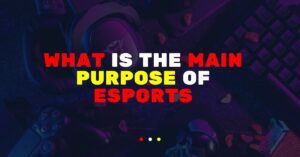Esports, a form of competitive video gaming, has gained immense popularity in the last decade. Thanks to live streaming platforms and large gaming tournaments with million-dollar prizes, esports has turned once obscure professional gamers into household names with legions of fans.
Esports tournaments, such as League of Legends, Dota 2, and Counter-Strike: Global Offensive, draw huge crowds of enthusiastic fans who come to watch the best players compete in massive arenas. However, despite its newfound fame and fortune, a top-level esports career is often strikingly brief compared to professional athletes in traditional sports.
While we regularly see football, basketball, and baseball players compete at the highest tiers well into their 30s, even the most skilled esports players often retire before age 25.
The reasons behind why esports gamers have short careers. Some have hypothesized that the younger demographics and ever-evolving game landscapes make continued mastery more challenging in the long run. Others argue that the extreme training demands and intense competition surrounding a few select titles lead to mental fatigue and burnout.
Determining why even legendary players seem to lose their competitive edge so quickly could be vital to understanding the strange and fascinating world of professional gaming.
12 Reasons Why Esports Gamers Have Short Careers
Intense Training and Practice
Esports players regularly endure challenging and demanding training sessions. 12+ hour practice days to hone their skills and remain atop the competitive ladder. The strict regimens include repetitive mechanics drilling, poring over the latest patches and meta shifts, and high-stakes competitive matches that extend mental focus to its limits.
Such lengthy hours focused solely on a single title exceed the training duration of even the most devoted traditional sports athletes. Unlike swinging a bat or kicking a ball, eSports performance is tied directly to mental stamina, critical thinking, and split-second decision-making.
Those cognitive and perceptual abilities degenerate rapidly in the face of extreme fatigue and burnout. Even for young competitors with the best reflexes, maintaining that pace of play for over 8 hours every day for years erodes the speed and accuracy required at the professional tier. Many cite sheer exhaustion, wrist injuries, eye strain, and back soreness as factors in their decline and early retirement from eSports competition.
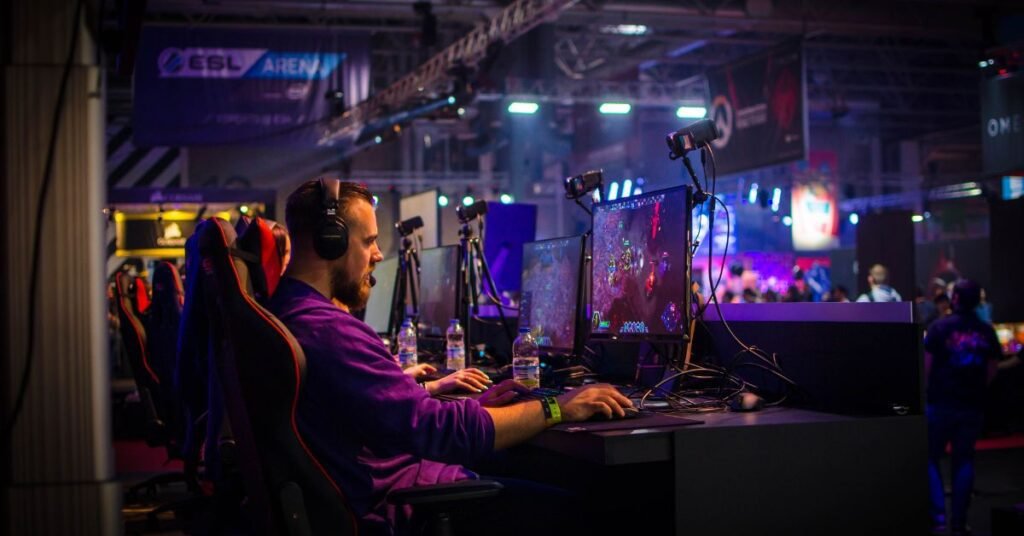
Game Updates and Meta Shifts
Unlike soccer, basketball, or hockey, whose rules and equipment undergo few major changes year to year, multiplayer video games evolve constantly. Professional leagues like the LCS (League of Legends) issue huge gameplay patches on a biweekly basis that rework characters, items, and systems.
On top of developer changes, innovations by top players shift the prevailing team strategies and counter-tactics, or “meta,” even more rapidly. Such constant evolution keeps gameplay novel and dynamic for the casual audience.
However, those turbulent landscapes confound mastery for even legendary eSport veterans clinging to the highest competitive rungs. Youth confer an advantage in adapting to and absorbing the latest gameplay permutations. Many older pros lament struggling to internalize the proliferating champion abilities, statistics, and interactions each season following extensive updates.
Exceeding the changing cognitive load exacts a toll on veterans’ execution and strategic flexibility. Their reaction times could be better, and decision making lags behind the whip-smart young rookies trained on the latest patches and hot trends.
Unable to compensate, once dominant players watch their skills atrophy and find themselves sliding steadily down the rankings into obscurity and forced retirement year after year.
Age and Reaction Time
Esports depend heavily on lightning-quick reactions and precise hand-eye coordination to excel. Studies demonstrate a cognitive and perceptual-motor decline in humans as early as the mid-20s.
As a result, older players inevitably lose a step against teenage and early 20s competitors whose visual and nervous systems operate at peak performance for fast-paced games.
Where a half-second distinguishes a world champion from a washed-up pro, ever slower reflexes grow more liability than hard-won veteran savvy is an asset. Once dominant marksmen late in their 20s find themselves outgunned by crack-shot 17-year-old rivals.
Veteran fighters struggle to block blows from phenoms with better agility. Such microscopic deficits accumulate until older players slide steadily down the rankings, unable to leverage their experience against youthful athleticism.
Burnout and Mental Health
The glowing stadium lights and roaring crowds of sold-out tournaments conceal lives of isolated grinding bordering on athletic monasticism. Players endure grueling schedules with little time for relationships, education, or hobbies – elements crucial for mental resilience.
Many cite emotional burnout even more than aging reflexes as driving their retirement. Isolation, extreme stress, performance anxiety, and obsessive perfectionism around these all-encompassing games fragilize even the most stoic young men and women over time.
Eventually, the unrelenting pressure implodes motivation and passion. Having centered their identities totally around gaming excellence, battered spirits seek escape through retirement from the lifestyle that has depleted them entirely.
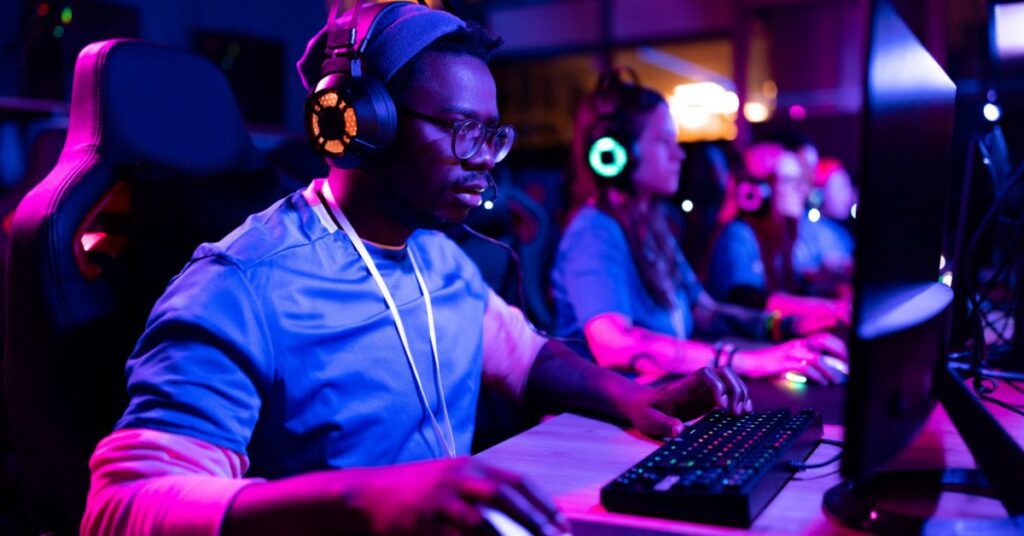
Injuries and Physical Health
Repetitive stress injuries plague esports players. Carpal tunnel syndrome, arthritis, and chronic back, neck, and shoulder pain are ubiquitous for those playing 10-14 hours daily. Lingering untreated, such debilitating conditions drastically hamper performance by impairing the quick, accurate movements on which gaming depends.
Most insidiously, the agony of compromised mechanics dissuades additional training that could prevent skill deterioration. Pro-level rehab remains scarce, leaving many top-flight gamers choosing between swifter reflex decay or unendurable pain each time they compete. Thus, poorly mitigated or exacerbated by continual play, the nagging physical breakdowns that prematurely conclude so many careers.
Financial Instability
While the top 0.01% of players gain fortune and celebrity through gaming, the vast majority scrape by on meager incomes that are unstable and inadequate for sustainable living.
Booming viewership conjures notions of easy money that young hopefuls soon dispel, struggling in underpaid practice leagues and qualifiers for even a shot at wider exposure. With little access to benefits or retirement planning that traditional sports leagues increasingly offer, even record-setting champions need more certainty about how long their prowess proves profitable in an unforgiving environment.
Fear of risking years toiling on slim salaries for a narrow window at a major payday drives many to abandon their Championship dreams early while finances permit career transition.
The Rise of Young Talent
Each year floods ever fiercer competition as increasingly younger rookies enter professional play. Where once primarily college students and 20-somethings populated tournaments, now high schoolers and even middle school students with lightning reflexes dominate the latest titles.
Unable to match the mechanical precision honed by 12 hours of daily play, veterans’ timing and accuracy succumb to these young phenoms, barraging them with moves and strategies absorbed from birth. Frustrated to see hard-earned expertise trounced by raw talent unencumbered by adult responsibility, many opt for retirement before embarrassingly lopsided losses pile up.
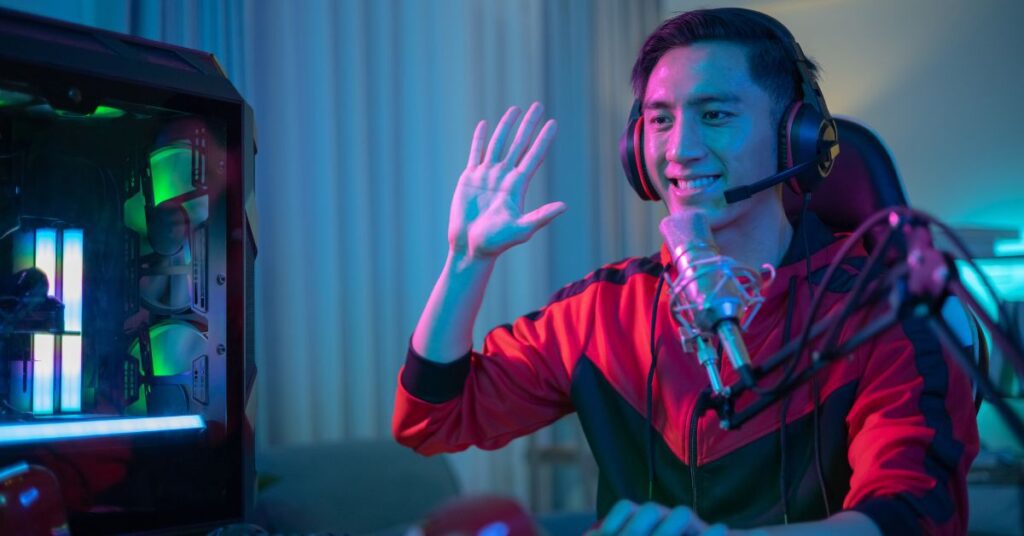
The Evolution of Esports
Every month brings new updates and technologies that transform gameplay and strategies. Uncomplicated mouse clicks turn into complex gesture commands, and each addition of a character or change of an item requires strategic planning.
Inundated veterans cling to comfortable formulas even as the tide shifts. Meanwhile, next-generation talents readily adapt to the increased complexity, relishing mastering amplifying possibilities. Their flexible grip withstands swells of change while rigid veterans wash away.
Lack of Long-Term Vision
The very young blood that overwhelms older players flows more carelessly. Teen phenoms fixate on immediate results: rankings, tournament wins, and cash prizes. Lacking an adult perspective, they need to consider career longevity and financial stability years down the road.
Thus, youth sacrifice health and future earning potential by plowing 14-hour days at subpar pay, chasing momentary glory. By the time perspective sets in, injuries and skill erosion have taken their toll.
With marketable abilities beyond gaming, they can avoid daunting transitions into unfamiliar career territory. Had appropriate guidance and examples set expectations beyond transient stardom, early planning could sustain viability beyond fleeting competitive windows.
Limited Career Opportunities:
The professional ceiling caps earlier in eSports compared to traditional athletics. Even all-time greats exceed their prime competitiveness before age 30. Lacking transferable skills beyond gaming prowess, retirement planning seems urgent before reflexes fade.
But opportunities to leverage gaming stardom into steady post-career options still need to be explored. Sporadic shout casting, coaching, and streaming gigs hardly equal playing salary dependability. Thus, financial pressures incentivize overextending into injury and mental exhaustion rather than forgoing income prematurely while seeking education and skills training.
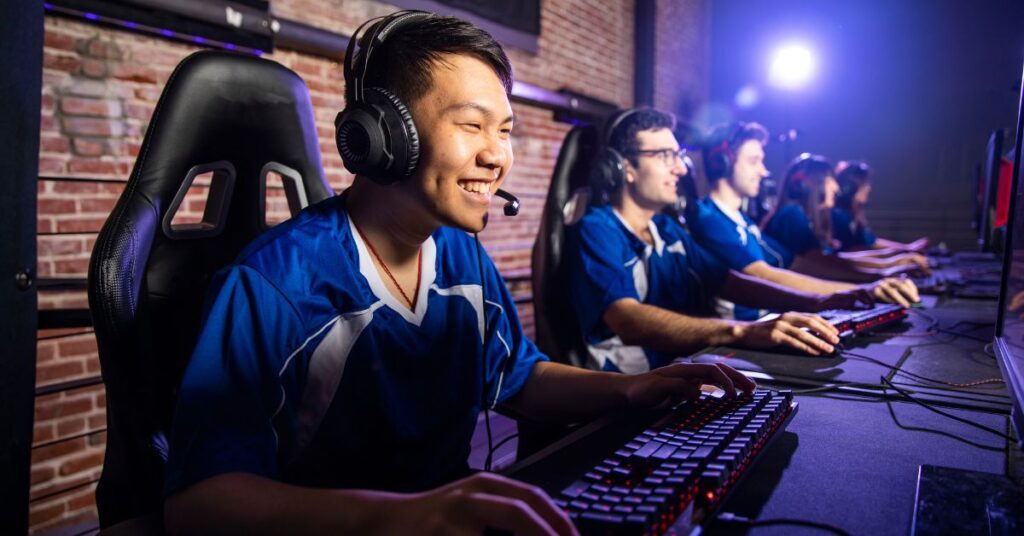
Game Saturation and Discontinuation:
New games constantly flood the market, leaving even the most popular titles vulnerable to waning player interest over time. Once legendary StarCraft and Heroes of Newerth professionals saw their incomes terminate practically overnight when fans jumped ship to fresher games.
Struggling to reclaim lost skill and game sense, they watch helplessly as newcomers surpass achievements that once seemed destined to secure comfortable futures. Fear of flickering fame’s collapse compels prudent players to exit before enthusiast flight. But starting from scratch in unfamiliar gameplay environments rarely restores former dominance.
Lack of Support Structures
Many lament the absence of player advocacy and development infrastructure endemic to traditional sports but sorely missing in eSports. Lacking agents to negotiate equitable contracts or unions to fight for health protections, most operate as lone wolves against the machinery of league management.
Legal and financial planning could be more active at best. This power imbalance contributes to the patterns of underpayment and overwork that eventually chew up even elite talents.
Conclusion:
Esports careers are short due to several factors such as rigorous training, rapid changes in the gaming industry, age-related issues, burnout, and financial instability. The competitive nature of the gaming world, combined with inadequate support systems, creates a situation where even the most talented players tend to retire early.
As the industry grows, addressing these multifaceted issues becomes crucial for fostering a sustainable environment that nurtures talent and ensures enduring success for esports professionals. It’s a call to action to reshape the narrative and empower gamers for lasting, fulfilling careers in the competitive gaming realm.


